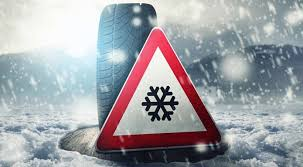Transitioning from the sunny and hot summer months to winter van life presents a set of challenges. However with the right preparations and equipment it can be a positive experience. This article provides guidance on insulating and ventilating your van to ensure warmth, essential maintenance upgrades to keep cold at bay and ensuring you have all the necessary equipment for winter trips.

The primary objective for any van owner is to establish a space that remains warm and cosy inside. Insulation plays a role in enhancing energy efficiency and shielding you from the weather conditions. Various insulation materials are available each with its advantages and disadvantages. Polyisocyanurate (or foam board) insulation is recommended, which can be easily obtained as sheets and cut according to your needs. This type of insulation is cost effective, offering thermal protection with R Values reaching up to 6.
In addition to insulation, proper ventilation is vital. Installing ventilation fans can help circulate air while preventing condensation buildup in your van. These fans can be conveniently fitted in windows. During the winter season proper ventilation becomes crucial as you may have to keep your heating system running for periods to stay warm. If you choose to leave your heater on it’s always an idea to utilise a timer or an auto shut off feature to prevent any chance of overheating your van. If you’re thinking of investing in a van, whether for business or leisure purposes, consider Van Hire Bristol and visit Autolyne

Additionally it is important to ensure that your water systems are well prepared for winter. This can be done by either draining them or storing them indoors. Water lines and tanks are susceptible to freezing if not properly drained or insulated. It’s essential to take care of this task before parking your van for the winter. If you have a water tank, installing a valve can be beneficial as it allows you to redirect the water away from the body of your van.
Check weather updates and consult maps for information, to keep informed on road and traffic conditions during the winter season.
When preparing for long winter journeys, remember to pack food and supplies. The specific type of food will depend on the climate of your destination; however, stocking up on freeze dried and dehydrated foods is often a starting point, as well as bottled water and a blanket.






